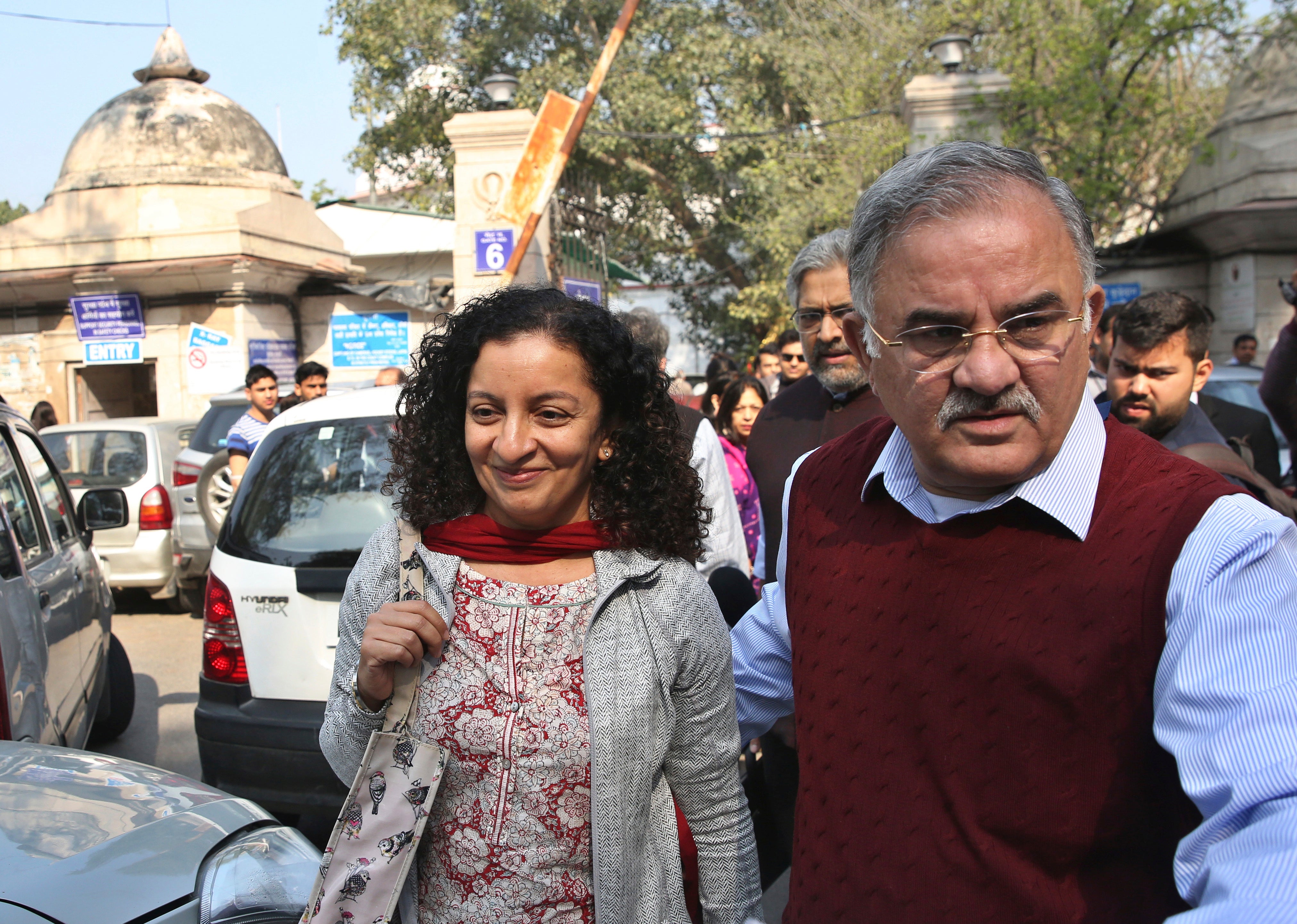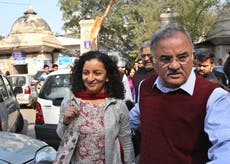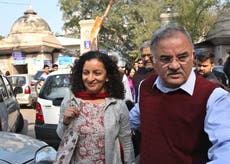For millions of Indian women, this landmark MeToo ruling is an emotional moment of validation
Priya Ramani’s successful defence will determine the way forward for the country’s MeToo movement – to be believed is a powerful feeling


Your support helps us to tell the story
From reproductive rights to climate change to Big Tech, The Independent is on the ground when the story is developing. Whether it's investigating the financials of Elon Musk's pro-Trump PAC or producing our latest documentary, 'The A Word', which shines a light on the American women fighting for reproductive rights, we know how important it is to parse out the facts from the messaging.
At such a critical moment in US history, we need reporters on the ground. Your donation allows us to keep sending journalists to speak to both sides of the story.
The Independent is trusted by Americans across the entire political spectrum. And unlike many other quality news outlets, we choose not to lock Americans out of our reporting and analysis with paywalls. We believe quality journalism should be available to everyone, paid for by those who can afford it.
Your support makes all the difference.Journalist Priya Ramani’s successful defence of the libel case brought against her by a former government minister felt fiercely personal to those whose voices have been silenced by the chilling effect defamation lawsuits can have on women who speak out about sexual abuse.
On Wednesday, as the additional chief metropolitan magistrate in a Delhi court started to read out the verdict in a case that has defined India’s MeToo movement since the autumn of 2018, many of the female journalists who have been a part of this arduous journey with Ms Ramani were present in court, forming a ring of support and solidarity.
Texts poured in on my phone from journalists – many of them survivors of sexual harassment themselves – as we braced for a day that would impact us all. “Will you be there in court today? Judgement’s at 2pm.”
In 2018, at the height of the MeToo movement in India, Ms Ramani accused Mr Akbar, an editor and former junior external affairs minister, of sexual harassment in a hotel room at The Oberoi in Mumbai in 1993 when she had gone to meet him for a job interview. Mr Akbar, 70, denied her allegations as “false, baseless and wild”.
Ms Ramani’s tweets at the time led upward of 10 other women to step forward with their own accounts, accusing Mr Akbar of a range of sexual misconduct. Mr Akbar has denied all of the women’s allegations. Many others named celebrities, including journalists, actors and filmmakers, leading to a conversation about rape culture and workplace sexual harassment that has forced millions of women to drop out from the workforce.
Today’s judgement was an important moment in the history of India’s feminist movement. The verdict in this high profile case would determine the way forward for the country’s MeToo movement.
An adverse decision would have pushed women further into the spiral of self-censorship, copycat lawsuits, mental and physical harassment, curtailing of their free speech and movement, not to mention online trolling. Already, many who have spoken up have been branded as liars and attention seekers by men on online platforms.
Reporters of legal news portals tweeted the verdict live for those who weren’t in the courtroom, which was packed with media, lawyers and police personnel. In private chat groups, the tension was palpable. The verdict played out on Twitter one tweet at a time.
“The court takes consideration of systematic abuse at workplace.”
“Court observes that even a man of social status can be a sexual harasser.”
“Sexual abuse takes away dignity and self confidence.”
“Woman has right to put her grievance [forward] even after decade.”
These words from judge Ravindra Kumar Pandey underscored the need for women to be believed in a country where due process of law is a long and tiring process, justice is often delayed and men, especially those in positions of power, are rarely held accountable. It came as a balm to women who have been hounded since 2018 for sharing their experiences on social media platforms, to be told by the court that the “right of [a man’s] reputation can’t be protected at the cost of right to [a woman’s] dignity”.
For those women who have battled scepticism, online harassment and derision to keep telling their stories, some through the @IndiaMeToo handle on Twitter, it was an overwhelmingly emotional moment of validation. Many of us were in tears, in our homes, unable to be physically present at the court, at work, on chats and calls with those who were there, standing with Ms Ramani.
A journalist and feminist editor friend simply texted the word “won” on WhatsApp, even as the judge was wrapping up the reading of the verdict. “Congratulations,” texted another.
"Many of us were in tears listening to the verdict, because the stakes were and are so high," writer Nilanjana Roy messaged on WhatsApp. Singer Chinmayi Sripaada, who has fronted countless MeToo stories of women through her personal account on Twitter, simply tweeted a row of hearts and a crying emoji, because it conveyed without words the intensity of what we all felt.
Tweet after tweet from women described how they broke down in tears. To be believed is a powerful feeling. In reality, the sobering thought is that the verdict simply protects Ms Ramani from punishment. Experts rightly point out that she should not have been dragged to court and made to endure a two-year trial for speaking out.
Mr Akbar reserves the right to appeal the verdict, and his legal team have suggested he will do so, but for survivors watching it unfold on Wednesday, it reaffirmed the urgent need for shoring up legal resources for millions of victims in India without the safety net of privilege and connection, who battle not just gender but caste and religion based violence on a daily basis.




Join our commenting forum
Join thought-provoking conversations, follow other Independent readers and see their replies
Comments